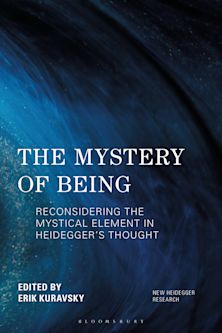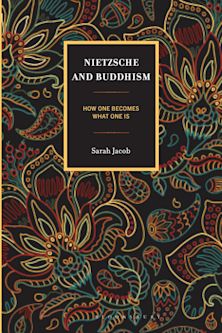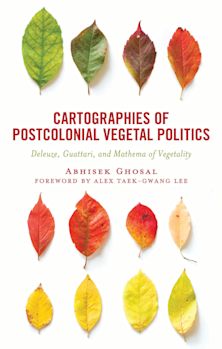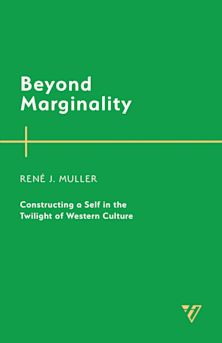- Home
- ACADEMIC
- Philosophy
- Philosophy - Other
- Sensual Philosophy
Sensual Philosophy
Toleration, Skepticism, and Montaigne's Politics of the Self
Sensual Philosophy
Toleration, Skepticism, and Montaigne's Politics of the Self
This product is usually dispatched within 1 week
- Delivery and returns info
-
Free US delivery on orders $35 or over
You must sign in to add this item to your wishlist. Please sign in or create an account
Description
Almost since their publication, the writings of Michel de Montaigne (1533-1592) have provided rich fodder for the work of scholars in myriad disciplines. Philosophers have considered Montaigne's views on skepticism; historians have examined his views on the Indians; deconstructionists and literary scholars have examined Montaigne's view of the self; and, political scientists have touched on his arguments for toleration. However, because each of these projects has been done largely in isolation, most scholars have failed to see the relationships between the various aspects of Montaigne's thought. Alan Levine, in Sensual Philosophy, unites Montaigne's thought for the first time, ably and convincingly demonstrating the significant role Montaigne played in establishing the liberal ethos in the West. In exploring Montaigne's grounding for liberalism, Levine considers Montaigne's conceptualization of skepticism and its relationship to toleration. He argues that Montaigne's theories of self ground his idea of toleration without leaving it open to the corrosive charges of relativism and nihilism. Levine also articulates the importance of Montaigne's thought for contemporary conceptions of personal freedom, individuality, subjectivity, and self-creation by bringing him into dialogue with modern and postmodern political theorists such as Heidegger, Nietzsche, and Richard Rorty. This lively book persuades those who might be tempted by postmodernism that they should turn to Montaigne instead.
Table of Contents
Chapter 2 Montaigne's Skepticism
Chapter 3 Cannibals in Utopia: Habitude Naturelle and the Politics of Primitivism
Chapter 4 Sophisticated Simplicity: The Reflective Self and the Good Life
Chapter 5 Montaigne's Politics of the Good Life: Toleration and the Private Sphere
Chapter 6 The Possibility of Skeptical Toleration: Essaying Montaigne's Arguments
Product details
| Published | Sep 12 2001 |
|---|---|
| Format | Hardback |
| Edition | 1st |
| Extent | 350 |
| ISBN | 9780739102466 |
| Imprint | Lexington Books |
| Dimensions | 9 x 6 inches |
| Series | Applications of Political Theory |
| Publisher | Bloomsbury Publishing |
About the contributors
Reviews
-
The book will quickly become the standard work on Montaigne and an important contribution to the larger debate over the crisis of modernity.
Adam Wolfson, Executive Editor, The Public Interest
-
Levine's book should do much to introduce Montaigne into the canon of political theorists. He brings Montaigne into fruitful dialogue not only with the liberal and republican traditions, but with the post-modernity of Nietzsche and Rorty. Levine's Montaigne shares with them the rejection of metaphysical truth but retains a claim to self-knowledge among his professions of ignorance, an understanding of the human condition and its limits that provides a defensible basis for liberal toleration.
Nathan Tarcov, University of Chicago
-
Sensual Philosophy is a subtle, beautifully written, and deeply learned book that helps us better understand the grounds and possibilities of modern individuality. Alan Levine's important book argues persuasively for the originality and relevance of Montaigne's understandings of individuality and the self, and what it means to be happy, whole, and tranquil in the modern world.
Stephen J. Macedo, Princeton University
-
. . . .This book is more than just a study of Montaigne's views on toleration. The result is the best book-length study of Montaigne's political ideas yet published in English.
Perspectives on Politics
-
This is an important new book on Montaigne, by a political theorist who is knowledgeable about, and comfortable with, literary criticism, philosophy, and cultural studies. There is not space here to do justice to the subtlety and sophistication of the arguments in this book.
Renaissance Quarterly
-
Alan Levine offers a first-rate account of Montaigne's thought that promises to be a major contribution to our field. Political theorists could expand their (sometimes narrow) imaginations by reading this book.
Aurelian Craiutu, Indiana University, Bloomington, Assistant Professor, Department of Political Science



































